At this point, online travel industry looks nearly packed up. There are countless service providers for online hotel booking, local tour booking, local guide search, adventure activities exploration, etc., in pretty much every market across the globe. So, entering this already saturated market may not seem like a very good idea.
But if we look closer to see how the advent of mobile online travel booking is transforming the industry, there are definitely sound opportunities for new players.
Stats say that between 2011 and 2015, mobile online travel booking has grown by 1700%. In terms of revenue, mobile’s share in online travel bookings has grown from 1% to 18% during the same period. And with smartphones becoming smarter each day, it is certain that the mobile travel booking trend will continue to reach new milestones in near future.
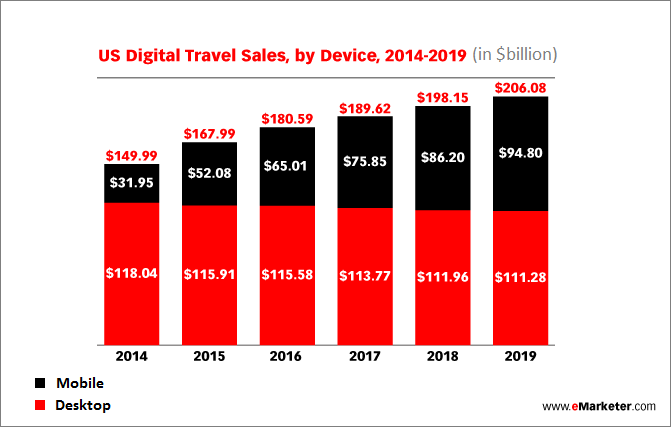
Now, it’s not like that existing players aren’t aware of the mobile shift in the online travel industry, but since mobile booking is a relatively new concept and the area is still unexplored for the most part, new players have as many opportunities as many the old ones.
With that said, mobile as a platform for booking tickets (via an app or mobile site) introduces a unique set of challenges for online travel businesses. Only by overcoming these mobile-specific hurdles can a travel startup make its mark in the industry. So, let’s see what these challenges are and how to curb them.
User Experience
The biggest challenge for the current generation of web designers/developers is – how to deliver a user experience on mobile, this is as smooth as the desktop. While the debate is still on, and probably will always be, there are certain modifications you can make in the UI of your travel booking mobile site/app that will make a whole lot of difference in its user experience.
Cut down the disturbance – textual or visual. A user is on your mobile app/site, only because he already knows about you. Don’t bombard him with redundant information. Only put what is needed for the transaction or whatever is the intended call to action at that point of the funnel.
Minimize the search filters to just popular categories (with separate option to access less popular & sub-categories) – or else, make your search smarter with AI and contextual search approach.
Keep the main navigation, key options, CTA buttons, etc., within the comfortable thumb reach. As smartphones’ screen size is becoming larger, doing such UI placement implementations are important to offer an unimpeded user experience.
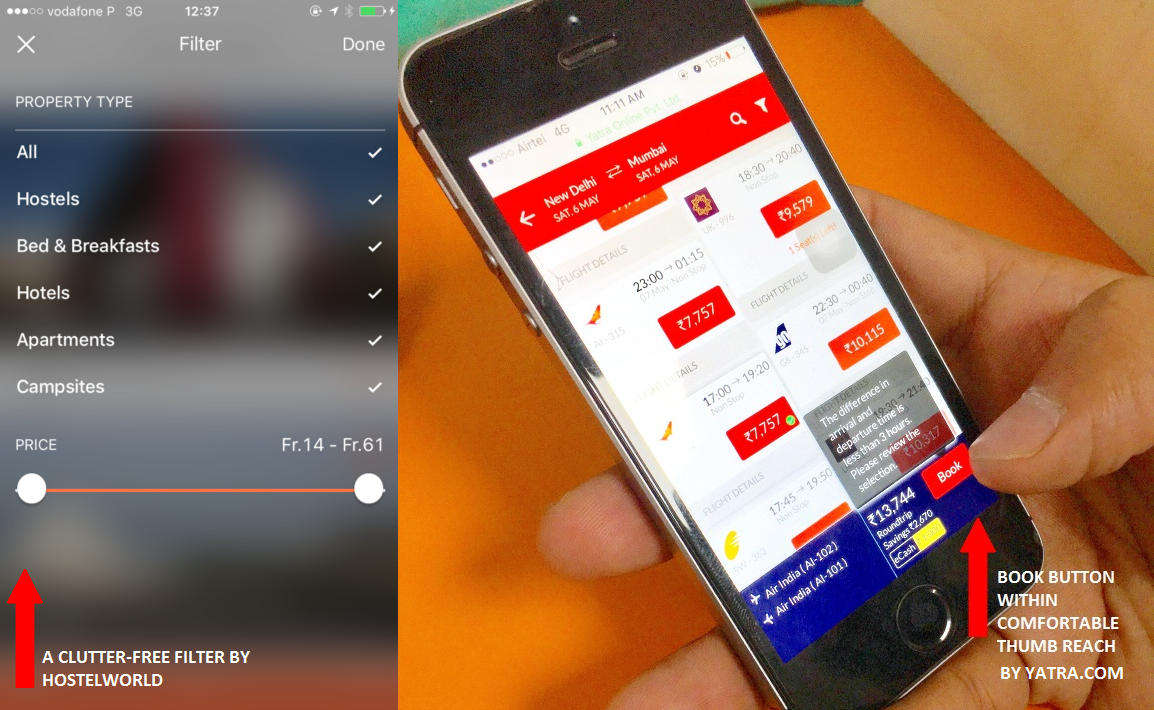
Suggested Read: UX Design Tips to Create Better Customer Engagement
Personalization
Although PC (Personal Computer) contains the word ‘personal’, it is never as personal as mobile.
So, when you are providing a service on mobile, it becomes mandatory that you offer a certain level of personalization to create better engagement. Well, what exactly you should offer depends on your business model, goals, competition, market saturation, etc.; but following are some steps and tips that are useful in this direction; irrespective of aforementioned deciding factors.
- First off, make the app GPS enabled & integrate maps to precisely track customer’s location in order to offer localized services
- Implement language translation and focus on cultural relevance, when making suggestions for more relevant search results
- Leverage big data & AI to keep a track of customer’s preferences, habits, basic details, etc. and provide an enhanced usage experience every time a user interacts with your mobile app/site.
Performance
Mobiles are mobile. One moment they are in a metropolitan area, the next moment, they might be carried through a far flung area. For travel apps, it is a much likely scenario than other online service providers. So, as an online travel startup focusing on mobile, it is imperative that your mobile app/site runs smoothly even in areas with poor network. In addition, it should also be robust enough to handle a good number of concurrent users without slowing down or crashing.
Here is what your need to do to ensure above-mentioned requirements:
- Since your app is going to use a lot of images (and that too of good quality), make sure you use best compression algorithm for image optimization
- Pay heed on server selection (AWS recommended), minimize 3rd party plugin integration (have key functionalities in-built in your app) and use automatic reference counting (ARC) for automatic memory release
- Use Storyboard instead of UI View as its loading time is less; & management easier
Related Read: Improve Page Load Speed – Tips and Online Tools from Pro Developers
The Smartphone vs. Tablet Experience
Online startups often overlook the tricky little difference between the smartphone & tablet experience when they decide to go mobile; which often makes mobile look like a bad idea.
Smartphones are associated with impulsive behavior and are mostly used to make urgent bookings. Research data also agree with this – as more than 60% same day hotel reservations happen on smartphones.
On the other hand, tablets are more of a convenient replacement of laptop/desktop; thus, are primarily used for browsing & research.
Be mindful of following tips to deliver rich user experience on both types of mobile devices:
- Make smartphone app transaction friendly. If a customer is on your mobile app, he is there on purpose; thus, no further engagement is required. So, remove the additional options/information to make transactions smooth.
- For tablet, use responsive layout to provide an experience similar to desktop that is optimized for mobile. You can use FunAway – a responsive turnkey solution that FATbit developed to simplify the setup of online travel booking platforms.
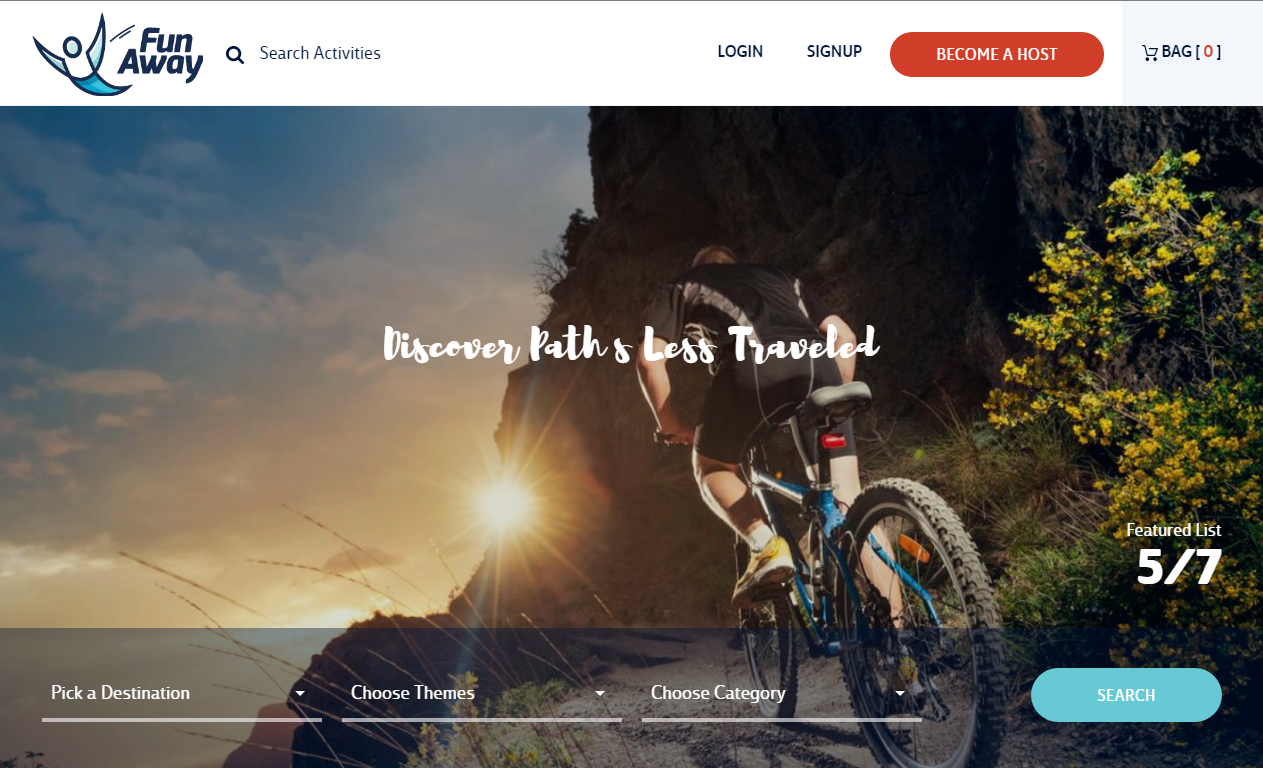
Get a mobile-friendly travel booking website instantly; economically
The Android vs. iOS Conundrum
I recently read an article, in which the founder of a travel booking business reflected that despite being on mobile her startup failed because they focused on iOS in an Android dominant market. Same mistake can be repeated by any new player that doesn’t pay heed to mobile demography of its target market.
In general, it is advised to have apps for both platforms to serve a wider audience; but to ensure that you are not stretching your efforts too thin in the wrong direction, it is better to find which platform to focus on beforehand.
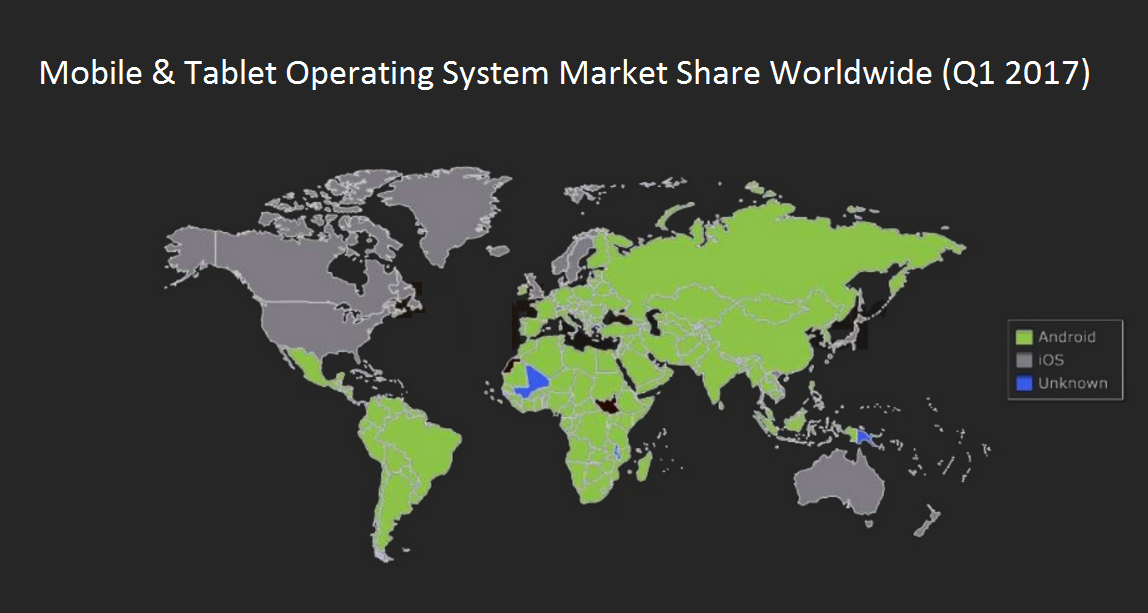
Source: StatCounter
The image above clearly tells which mobile platform you should focus on, depending on your target market. However, before making any final decision take following points into consideration:
- Smartphone market share fluctuate with every new release, so double check before you decide which platform you should target primarily
- Your target market may be dominated by Android but is your target audience also mostly Android users? Verify it and move ahead accordingly.
- If you are clear which mobile platform to focus on, keep track of the growth rate of the other platform as well, to be prepared in advance if the need arise to make a shift
Conclusion
Mobile booking is a disruptive shift in the online travel industry; and unquestionably, a favorable one for new players. But at the same time, as a new player, you should be aware of the fact that existing players are also making efforts in the direction.
So to stay ahead in the race, it is important that apart from overcoming the above-mentioned challenges, you also keep an eye on the most thriving online travel businesses & how they are entertaining their mobile audience.
In a nutshell – observe, learn, implement, & grow.
Need advice to build the right growth strategy for your travel startup?
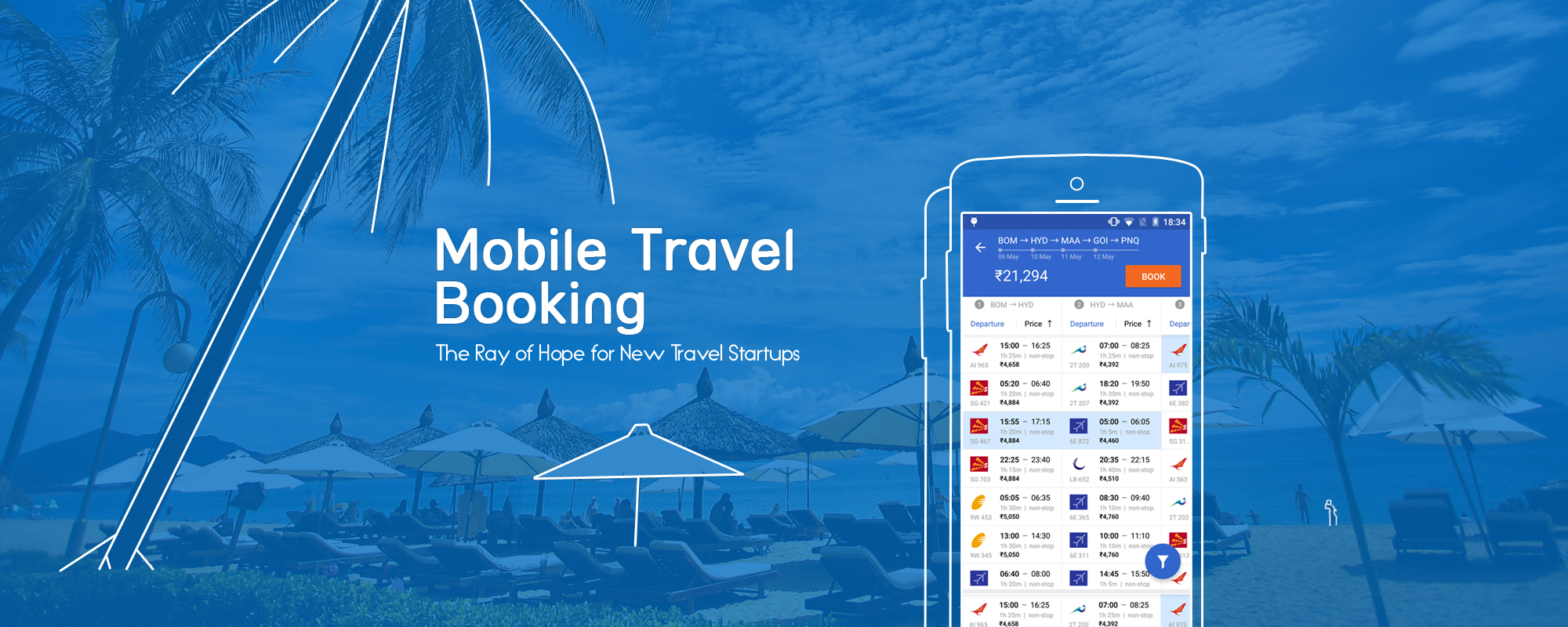






Comments (4)
 Emmerey Rose
Emmerey Rose
 Deepak
Deepak
 Emmerey Rose
Emmerey Rose
 Deepak
Deepak
Hey Deepak. Thanks for sharing the data on IOS vs Android users distribution. Helps a lot! 🙂 by the way, I was wondering. Does SEO in mobile have a different algorithm?
Hi Emmerey,
Glad you find it useful!
The search algorithm is same for all platforms, but on which factors the algorithm decides ranking for mobile devices differs slightly from desktop. You can work on following areas to optimize your website for mobile:
– Optimize code, use cache, & reduce redirects to improve page load speed
– Don’t use pop-ups; work on button’s size & position – to minimize bounce rate
– Google supports all mobile configurations but prefer responsive design
– Make titles & meta descriptions concise for quick read on mobile devices
Do you have an online travel business of your own? If so, let me know the results you get after implementing these mobile optimizations.
Best,
Deepak
Thanks for responding Deepak! Helps a lot.
Happy to help! : )
Keep coming back for more such useful stuff.
Deepak